Events
| Name | organizer | Where |
|---|---|---|
| MBCC “Doing Business with Mongolia seminar and Christmas Receptiom” Dec 10. 2025 London UK | MBCCI | London UK Goodman LLC |
NEWS
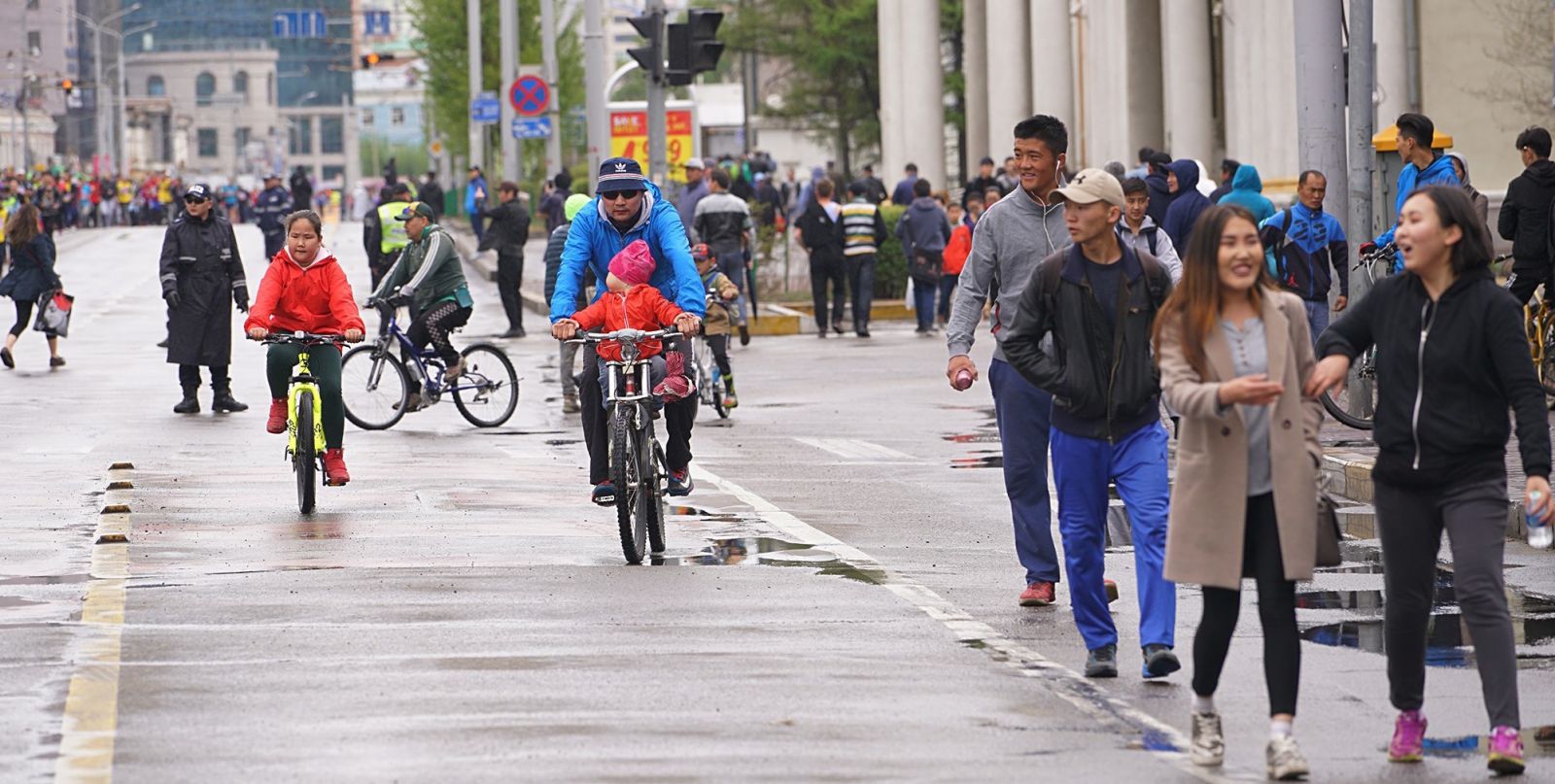
The Pension Amount Increased by Six Percent www.gogo.mn
At today’s regular cabinet meeting (December 18, 2024), the Government discussed the adjustment of pension amounts in accordance with the Law on Pensions Provided by the Social Insurance Fund. According to the law, "The amount of pension for retirees shall be increased starting from January 1 of each year, in line with the average annual inflation rate of the previous year."
In line with this, the Government issued a resolution to increase the pension amounts and update the minimum pension thresholds. Under this resolution, the pensions provided through the Social Insurance Fund, as well as military pensions, will be increased by six percent. The Minister of Labor and Social Protection, L. Enkh-Amgalan, has been tasked with implementing this resolution within the approved budget framework.
Furthermore, the minimum amount for full pensions provided by the Social Insurance Fund and military pensions has been set at MNT 689,000 (six hundred eighty-nine thousand), while the minimum amount for proportional pensions provided by the Social Insurance Fund has been set at MNT 572,400 (five hundred seventy-two thousand four hundred).
This resolution will take effect starting January 1, 2025. To facilitate the six percent pension increase, a budget of MNT 297.4 billion has been allocated under the Social Insurance Fund's budget for 2025.
Translated by ChatGPT
Mongolia keen to boost relations with Bahrain www.zawya.com
Mongolia’s Prime Minister Oyun-Erdene Luvsannamsrain has praised Bahrain’s economic transformation and called for stronger ties between the two nations following his landmark visit to the kingdom earlier this month.
Speaking exclusively to the GDN after his maiden trip, the Mongolian premier described Bahrain as a ‘hidden gem’ and highlighted the parallels between the two countries, despite their geographical differences.
“Although Mongolia is landlocked and Bahrain is an island nation, we share common challenges and opportunities. Bahrain’s ability to overcome its limitations and thrive as a financial and economic hub is truly inspiring,” said Mr Oyun-Erdene.
One of the key aspects of Bahrain’s success that struck the visiting delegation was its economic diversification. He praised Bahrain for reducing its reliance on the oil sector, which now contributes just 15 per cent of the GDP.
“Bahrain has shown that a smaller population is not a barrier to development. Its transformation over the last 15-20 years is a model for countries like Mongolia, which is also rich in natural resources but is seeking to diversify its economy,” he added.
Mr Oyun-Erdene identified three critical areas for potential co-operation:
Finance: Mongolia plans to tap into Bahrain’s expertise as a regional financial hub, with proposals for reciprocal visits and knowledge-sharing initiatives in fintech and financial systems.
Mining: Bahrain’s resource management expertise could help Mongolia optimise the use of its vast critical mineral reserves.
National Security: Both countries are considering exchange programmes to develop strategies aligning national resources with global demand.
“Collaboration in these areas could set a precedent for innovative partnerships between nations with complementary strengths,” said the Mongolian Prime Minister.
Currently, Mongolia has diplomatic missions in the UAE, Kuwait and Egypt but none in Bahrain. However, the Prime Minister expressed interest in expanding Mongolia’s presence in the GCC.
“Bahrain can serve as a gateway to the Gulf for Mongolia, while Mongolia offers access to the massive markets of China and Russia. Strengthening our partnerships will create opportunities for trade, tourism and cultural exchange,” he said.
During his visit, Mr Oyun-Erdene met His Royal Highness Prince Salman bin Hamad Al Khalifa, Crown Prince and Prime Minister, Sustainable Development Minister and Bahrain Economic Development Board chief executive Noor Al Khulaif, Cabinet Affairs Minister Hamad Al Malki and Muharraq Governor Salman Isa bin Hindi.
Reflecting on his trip, the Mongolian leader described Bahrain as a ‘revelation’ and a country that deserves greater recognition.
“This visit wasn’t just about professional ties – it was personal. Bahrain’s charm and potential left a lasting impression,” he added.
He also dismissed earlier assumptions that a country needed a population of at least five million to thrive, citing Bahrain as a shining example of how vision and strategic planning can drive growth.
Reaffirming Mongolia’s open-door policy, Mr Oyun-Erdene extended an invitation to global investors to participate in the country’s development, particularly in the mining and energy sectors.
The Prime Minister also expressed interest in attending future editions of the Manama Dialogue, underscoring Mongolia’s commitment to strengthening its relationships on the global stage.
His visit to Bahrain was part of a broader initiative to boost ties with the Gulf, including his first-ever trip to Saudi Arabia. The two visits signal Mongolia’s intent to enhance co-operation with the region, particularly in areas of economic and strategic importance.
“This is just the beginning of our journey together. The potential for mutual growth between Mongolia and Bahrain is enormous, and I look forward to deepening this relationship in the years to come,” Mr Oyun-Erdene concluded.
The visit has set the stage for a promising partnership, with both nations drawing on each other’s strengths to create a shared path to progress.
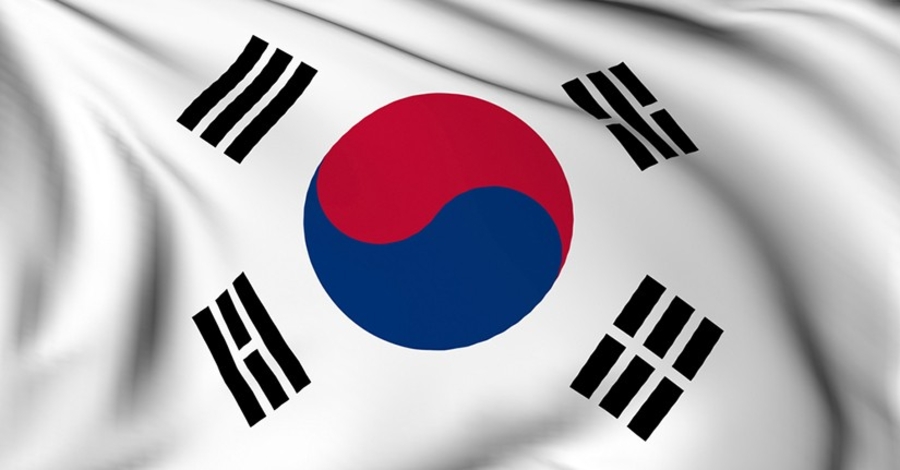
KMI opens joint medical checkup center in Mongolia www.news.koreaherald.com
Korea Medical Institute announced Wednesday that it has opened its first overseas medical check-up center, Family Medical Center with KMI, in Ulaanbaatar, Mongolia.
Located at the E-Mart Bayangol branch, the facility is a joint project between KMI and Mongolia’s Family Medical Center, aiming to improve access to health screenings for Mongolians while introducing advanced Korean medical services, KMI said.
The center offers a range of services, including national health screenings, corporate check-ups and individual medical assessments since its opening in September.
By integrating KMI’s specialized expertise with Mongolia’s healthcare needs, the center provides a tailored and differentiated experience for clients, according to the institute.
“Merging KMI’s specialized expertise with Mongolia’s distinct healthcare needs will provide a differentiated service for our clients,” a KMI official noted.
Mongolia implemented a mandatory national health screening program in May 2022 to encourage early disease detection and prevention, leading to growing demand for medical services. To support these efforts, the institute added that KMI and FMC will jointly operate the facility and collaborate on technology sharing and training programs for Mongolian medical professionals.
“Starting with the launch of the K-Health Check-up System in Mongolia, we will continue to strive for the expansion of Korea’s advanced medical systems to other countries,” said KMI’s Chief Strategy Officer, Lee Kwang Bae.
Established in 1985, KMI operates eight medical check-up centers in South Korea, including locations in Seoul, Busan and Jeju. It focuses on disease prevention and public health while engaging in various social contribution programs.
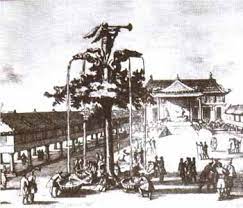
The Urban Planning Administration Overseeing the Development of New Kharkhorum City www.montsame.mn
A Working Group, established to support the Government of Mongolia 2023 Resolution on building New Kharkhorum City in the Orkhon Valley, Uvurkhangai aimag, visited the Urban Planning Administration tasked with overseeing the city's development on December 17, 2024.
The Urban Planning Administration currently operates with 27 out of 30 positions filled. Its responsibilities include developing planning frameworks, legal regulations, infrastructure strategies, and investment policies to facilitate New Kharkhorum City's establishment. According to the Head of the Administration, N. Natsagdorj, foundational research has been completed, including potable water resource assessments, engineering geological and topographical surveys, environmental impact evaluations, and archaeological and paleontological studies.
In March 2024, an International Competition for the New Kharkhorum City Concept was announced to define the city's vision, development priorities, planning principles, and general design. A total of 426 teams from 54 countries registered, with 76 teams submitting proposals. From these, 36 proposals from 18 countries were shortlisted and are currently informing the city's planning process.
The Orkhon Valley is a historically significant place, home to the ancient capitals of the Hunnu Empire's Luut City, the Rouran's Mumo City, and the Uyghur's Khara Balgas, as well as the Great Mongol Empire's capital, Kharkhorum. Reflecting this heritage, the new city is planned as a cultural and tourism hub that will also focus on high-tech industries. It is designed to adhere to green development principles, creating a smart, eco-friendly environment. The city will cover 189,363 hectares, support a population of 500,000, and feature green spaces that make up 50 percent of residential areas.
The Working Group—established by a 2024 decree of Amarbayasgalan Dashzegve, Chairman of the State Great Khural of Mongolia, led by the Chairman of the Standing Committee on Security and Foreign Policy, G. Temuulen, and includes Members of the State Great Khural M. Enkhtsetseg, G. Luvsanjamts, D. Purevdavaa, B. Punsalma, and N. Batsumberel. During their visit, the Working Group reviewed the Administration's operations and the city's master plan. Additionally, the officials discussed the Draft Law on supporting the development and growth of New Kharkhorum City.
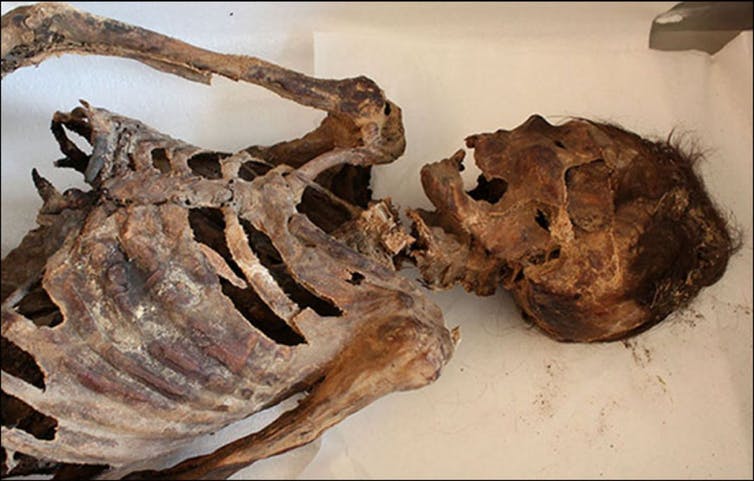
Human Remains Dating Back 25,000 Years Discovered in Mongolian Gobi Desert www.montsame.mn
On December 12, 2024, the Institute of Archaeology of the Mongolian Academy of Sciences and the Institute of Archaeology at the University of Wrocław in Poland jointly presented the discovery of ancient human remains from the Pleistocene era in Mongolia.
“Joint archaeological research between Mongolia and Poland commenced in 2014. A notable discovery found from the"Tsakhiurt Valley: Ancient Lakes, Ancient Caves" research project, an ancient human bone was unearthed within the seventh cultural layer of the Khutul Us Cave located in Bulgan soum, Umnogobi aimag. This marks the second Pleistocene human find in Mongolia and is remarkably the first such discovery in the Northeast Asian region over the past five years,” highlighted Eregzen Gelegdorj, Director of the Institute of Archaeology of the Mongolian Academy of Sciences
Several ancient lakes in the southern part of the Tsakhiurt Valley were chosen for archaeological and paleoecological studies. The shores of these ancient lakes were actively inhabited by humans from the Paleolithic to the Neolithic periods. New, large archaeological sites were discovered during the research in the mountainous region of the Arts Bogd Mountain range, which borders the Tsakhiurt Valley to the north. Numerous open-air Paleolithic settlements were found in the valley, yielding tools made not only from flint but also from green quartzite, reddish jasper, and black flint.
In addition to animal bones, stone tools, and bone beads, a human tooth dating back 25,000 years has been discovered. Specifically, archaeologists excavating Khutul Us Cave have unearthed a human tooth belonging to an adult. This marks the second discovery of Pleistocene human remains in Mongolia, following the top of a skull found in the Salkhit area of Khentii aimag. Experts believe this tooth holds significant potential for future DNA research, offering insights into the origins of the people who inhabited the Mongolian Altai Mountains 25,000 years ago.
MONTSAME Mongolian National News Agency spoke with Associate Professor Eregzen Gelegdorj (Ph.D.), Director of the Institute of Archaeology of the Mongolian Academy of Sciences, on the discovery.
Could you please introduce the results of the joint archaeological research of Mongolia and Poland?
The joint expedition between Mongolia and Poland is a project implemented by the Institute of Archaeology of the Mongolian Academy of Sciences and the Institute of Archaeology at the University of Wrocław in Poland. The goal of this project is to conduct archaeological research in the Gobi region of Mongolia, focusing on uncovering ancient stone tools, artifacts related to stone tools, and traces of human activity.
The joint expedition conducted archaeological excavations over two years in the Hutul Us Cave of Bulgan Soum, Umnugobi aimag, reaching a depth of 3.5 meters. From these excavations, several cultural layers were discovered, containing traces of human activity from multiple periods. Among these, the 7th cultural layer, dating back approximately 25,000 years, revealed a fragment of a human incisor tooth. Radiocarbon dating determined the tooth to be around 24,700 years old. Despite its small size, a 2-milligram sample was taken from the fragment for radiocarbon dating. Plans include detailed genetic analysis, with some preliminary research already underway. The fragment, along with other findings, ispreserved in the collection of the Institute of Archaeology of the Mongolian Academy of Sciences.
How about the other findings?
The other findings consist of stone tools, such as those crafted by the people of that era, and decorative items made from animal bones. These findings suggest that people lived in the Gobi region approximately 25,000 years ago.
Were similar discoveries made in the past?
Many stone tools and ancient human remains have been discovered in Mongolia. However, the remains of human bones or organs themselves are extremely rare. In 2006, a human skull was found at the Salhit area of Norovlin soum, Khentii aimag. That skull, estimated to be 39,000–40,000 years old, belonged to a woman. The current discovery is the second major find of its kind, with significant scientific value. It is especially notable for being a rare find of human bone remains, considered extraordinary on a global scale.
How long will the genetic analysis take, and what additional insights could it provide?
The primary reason for conducting genetic analysis on this find is to extract its genetic information. In the Eurasian region, there are several genetic clusters. For example, we can compare this find to individuals from Denisova Cave and Beijing, China, to determine if they belong to the same ancestral group or represent a distinct lineage.
Additionally, this research will shed light on the origins of this individual. The initial stages of genetic analysis are already underway. We anticipate that the results will be available and published in international journals within the next 1-2 years, making them accessible to the public.
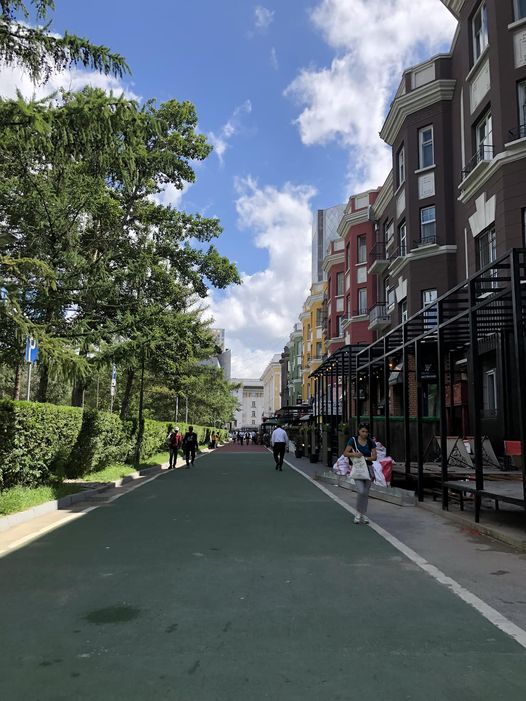
Faro Foundation Joins ICDL as the Newest Accredited Test Centre in Mongolia www.icdl.org
ICDL Asia is delighted to announce the accreditation of Faro Foundation as the newest ICDL Accredited Test Centre (ATC) in Mongolia. This significant collaboration aims to expand Mongolian learners’ access to world-class digital skills training and certification nationwide.
Faro Foundation, known for its commitment to bridging the digital divide, will offer the internationally recognised ICDL digital skills certification programme tailored for professionals looking to enhance their digital competencies. Through these programs, individuals will acquire valuable skills that meet international certification standards, positioning them for success in today’s digital economy.
This partnership marks a significant milestone in ICDL mission to promote digital literacy across Asia, shaping Mongolia’s digital future and driving the country’s digital transformation. We look forward to a successful collaboration with Faro Foundation in fostering meaningful change to Mongolia’s digital landscape.
About Faro Foundation
Faro Foundation is a non-governmental organisation in Mongolia dedicated to promoting digital literacy and bridging the digital divide through educational programs and initiatives. The foundation’s efforts include curriculum development, training programs, policy advocacy, and public campaigns to ensure equitable access to digital skills for all.

Mongolian National Team Wins 79 Medals in 2024 www.montsame.mn
The athletes of the National Team of Mongolia achieved remarkable success in 2024, collecting a significant number of medals from the Summer Olympics, Paralympics, continental, and world championships.
The National Team of Mongolia consists of 334 members, including 270 athletes, 60 coaches, and four doctors across 26 summer and winter sports disciplines. This year's highlight achievements included silver from the Summer Olympics won by the Honored Athlete of Mongolia B. Baasankhuu, gold medal from the 2024 Paralympics by Hero of Labor of Mongolia U. Surenjav, and silver medals from the Honored Athletes of Mongolia G. Bolor- Erdene, Ts. Battulga, and the Hero of Labor of Mongolia E. Sodnompeljee. Notably, B. Baasankhuu delivered an exceptional performance this year, winning silver at the Olympics, gold at the World Championships, gold at the Asian Championships, and gold at the "Grand Slam."
In 2024, Mongolian athletes earned five medals at the Olympics and Paralympics: one gold and one bronze at the Adult World Championships, one gold and one silver at the Youth World Championships, and one gold at the Junior World Championships. Additionally, they secured five gold, 11 silver, and 16 bronze medals at the Asian Championships; one gold at the Junior Asian Championships; one gold and five bronze medals at the "Grand Slam"; and two gold, two silver, and seven bronze medals at the Grand Prix tournaments.
Furthermore, at the "Paris 2024" Olympic qualification events, Mongolian athletes won five gold, seven silver, and one bronze medal, while at the World Cup, they claimed three gold, one silver, and two bronze medals.
In total, Mongolia's national team won 79 medals in 2024, including 21 gold, 26 silver, and 32 bronze medals.

Rio Tinto, BHP, and BlueScope to build ‘green iron’ plant www.mining.com
Australia’s two largest iron ore miners Rio Tinto (ASX: RIO) and BHP (ASX: BHP) are joining forces with BlueScope Steel to develop the country’s largest low-carbon iron-making furnace, to be located in the Kwinana Industrial Area, south of Perth.
The NeoSmelt pilot plant, designed to produce 30,000 to 40,000 tonnes of molten iron annually, will initially operate using a mix of natural gas and hydrogen.
The facility will reduce iron ore to direct reduced iron (DRI) as part of efforts to lower emissions in steel production, the companies said in a statement.
It aims to test and optimize the production of iron using the electric smelting furnace (ESF). This type of furnace is being developed by steel producers and technology companies with a focus on reducing CO2 emission intensity in the sector, the partners said.
This “green iron” project was first revealed in February, but without key details such as its location. It aims to assist steelmakers worldwide in reducing their carbon footprint while relying on Australian iron ore.
If successful, the technology could slash emissions by up to 80%, provided renewable energy and green hydrogen are utilized.
Woodside Energy (ASX: WDS) is expected to join as an equal equity partner in the collaborative effort. The company will also serve as the project’s energy supplier, pending finalization of commercial agreements.
The project will advance to feasibility studies in the second quarter of 2025, with a final investment decision anticipated in 2026. Operations are projected to commence in 2028.
If successful, the technology could slash emissions by up to 80%, provided renewable energy and green hydrogen are utilized. This innovation has the potential to facilitate near-zero greenhouse gas emissions for steelmakers processing Australian iron ore, meeting growing global demand for sustainable steel production.
Steel production, a cornerstone material for infrastructure and the energy transition to net zero, currently accounts for approximately 8% of global carbon emissions. More than 70% of steel is produced using coal, underscoring the importance of the shift towards greener production methods.
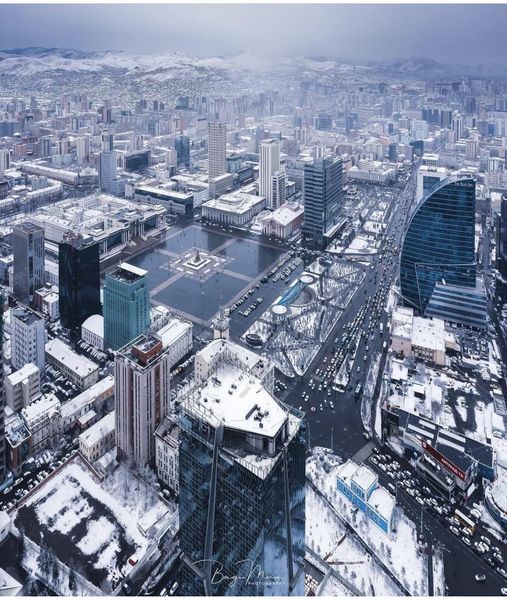
Laws that will implement from January 1, 2025 www.news.mn
The following laws will be implemented from January 1, 2025 in Mongolia.
The current minimum wage in Mongolia is MNT 660,000 per month in 2024. It will be MNT 792,000 from January 1, 2025. Minimum wage of Mongolia has been increasing every year since 1995. At this time, minimum wage was MNT 9600.
According to the Amendments to Article 12 of the Law on Herders, Mongolia will improve access to financial services for herders. As a result of this, cooperation and connection between banks, factories and herders will be improved. Working and living conditions of herders in their communities will improve furthermore. It will also increase the range of loan and insurance products for herders.
Amendments to the Law on the Elderly will be implemented starting next year. Average aging of Mongolia is increasing year after year. Thus, the number of elderly people in the working-age population is expected to increase from one in 10 in 2010 to one in 4 by 2040. Therefore, it has been decided to amend the law to encourage the continued employment of the elderly in order to provide a stable source of income for the elderly.
At last, Amendments to the law on personal income tax has been made. The amount of the discount shall not exceed 1 percent of the taxable income for the tax year.
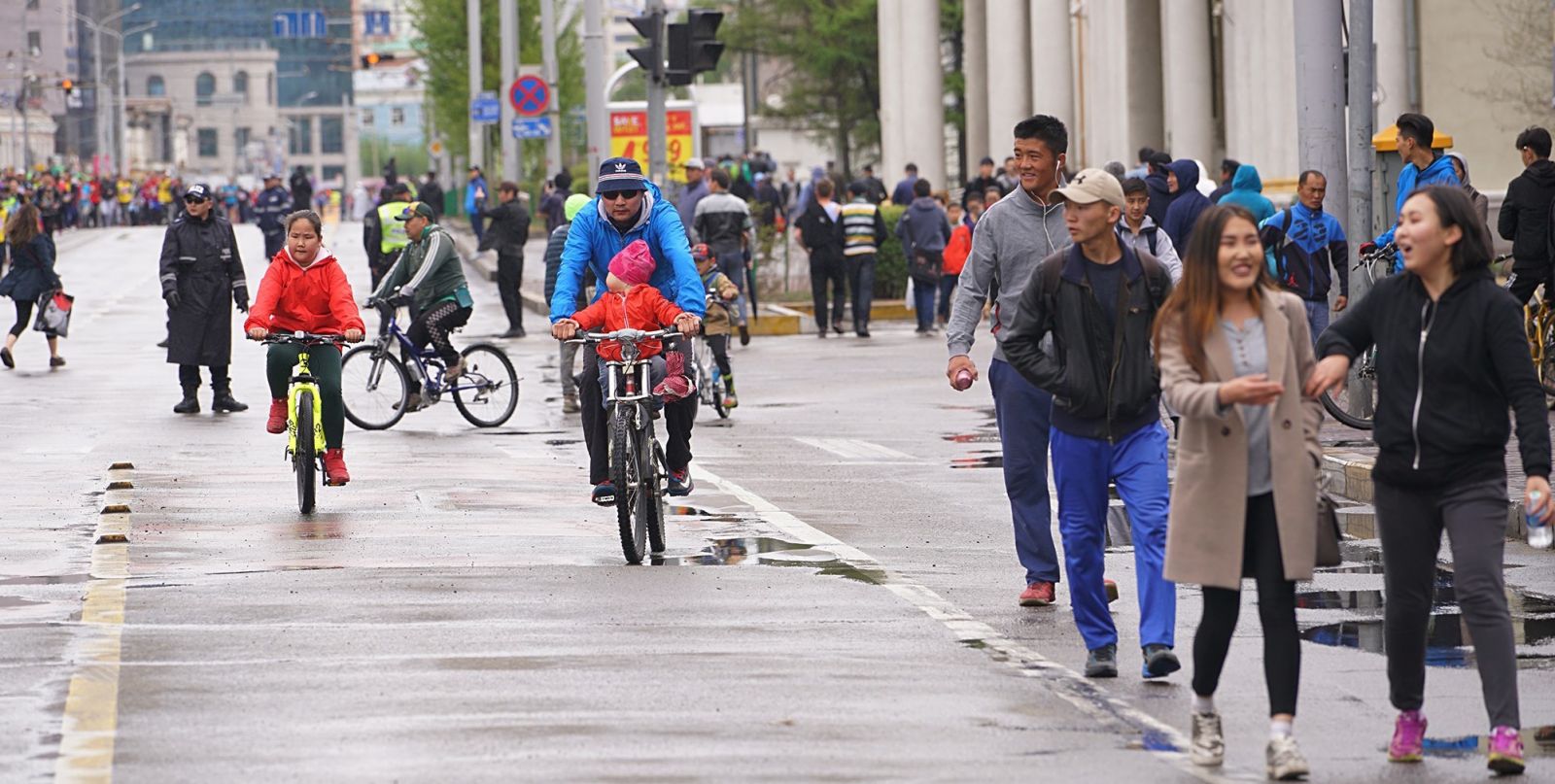
Mongolia's Labor Productivity is 3.6 Times Lower Than the Global Average www.gogo.mn
The Ministry of Labor and Social Protection, the Asian Productivity Organization, and the Mongolian Productivity Organization jointly organized the Productivity Revolution conference today, December 17, 2024, with the goal of defining a national productivity strategy and accelerating the productivity movement at a national level.
As of today, Mongolia's average labor productivity is 3.6 times lower than the global average and 5.4 times lower compared to South Korea.
Labor productivity and wages are directly correlated. In Mongolia, the mining and information technology sectors demonstrate the highest productivity and provide the highest wages.
Therefore, the government plans to launch a productivity revolution by formulating and implementing policies, regulations, and measures aimed at increasing productivity across all levels of the public and private sectors.
Efforts will focus on supporting intellectual labor, increasing remote and digital work opportunities, and progressively improving Mongolian workers' labor productivity and wages on an annual basis.
Additionally, steps will be taken to ensure occupational safety at all levels, establish decent workplaces, and build a productivity ecosystem.
Translated by ChatGPT
- «
- 1
- 2
- 3
- 4
- 5
- 6
- 7
- 8
- 9
- 10
- 11
- 12
- 13
- 14
- 15
- 16
- 17
- 18
- 19
- 20
- 21
- 22
- 23
- 24
- 25
- 26
- 27
- 28
- 29
- 30
- 31
- 32
- 33
- 34
- 35
- 36
- 37
- 38
- 39
- 40
- 41
- 42
- 43
- 44
- 45
- 46
- 47
- 48
- 49
- 50
- 51
- 52
- 53
- 54
- 55
- 56
- 57
- 58
- 59
- 60
- 61
- 62
- 63
- 64
- 65
- 66
- 67
- 68
- 69
- 70
- 71
- 72
- 73
- 74
- 75
- 76
- 77
- 78
- 79
- 80
- 81
- 82
- 83
- 84
- 85
- 86
- 87
- 88
- 89
- 90
- 91
- 92
- 93
- 94
- 95
- 96
- 97
- 98
- 99
- 100
- 101
- 102
- 103
- 104
- 105
- 106
- 107
- 108
- 109
- 110
- 111
- 112
- 113
- 114
- 115
- 116
- 117
- 118
- 119
- 120
- 121
- 122
- 123
- 124
- 125
- 126
- 127
- 128
- 129
- 130
- 131
- 132
- 133
- 134
- 135
- 136
- 137
- 138
- 139
- 140
- 141
- 142
- 143
- 144
- 145
- 146
- 147
- 148
- 149
- 150
- 151
- 152
- 153
- 154
- 155
- 156
- 157
- 158
- 159
- 160
- 161
- 162
- 163
- 164
- 165
- 166
- 167
- 168
- 169
- 170
- 171
- 172
- 173
- 174
- 175
- 176
- 177
- 178
- 179
- 180
- 181
- 182
- 183
- 184
- 185
- 186
- 187
- 188
- 189
- 190
- 191
- 192
- 193
- 194
- 195
- 196
- 197
- 198
- 199
- 200
- 201
- 202
- 203
- 204
- 205
- 206
- 207
- 208
- 209
- 210
- 211
- 212
- 213
- 214
- 215
- 216
- 217
- 218
- 219
- 220
- 221
- 222
- 223
- 224
- 225
- 226
- 227
- 228
- 229
- 230
- 231
- 232
- 233
- 234
- 235
- 236
- 237
- 238
- 239
- 240
- 241
- 242
- 243
- 244
- 245
- 246
- 247
- 248
- 249
- 250
- 251
- 252
- 253
- 254
- 255
- 256
- 257
- 258
- 259
- 260
- 261
- 262
- 263
- 264
- 265
- 266
- 267
- 268
- 269
- 270
- 271
- 272
- 273
- 274
- 275
- 276
- 277
- 278
- 279
- 280
- 281
- 282
- 283
- 284
- 285
- 286
- 287
- 288
- 289
- 290
- 291
- 292
- 293
- 294
- 295
- 296
- 297
- 298
- 299
- 300
- 301
- 302
- 303
- 304
- 305
- 306
- 307
- 308
- 309
- 310
- 311
- 312
- 313
- 314
- 315
- 316
- 317
- 318
- 319
- 320
- 321
- 322
- 323
- 324
- 325
- 326
- 327
- 328
- 329
- 330
- 331
- 332
- 333
- 334
- 335
- 336
- 337
- 338
- 339
- 340
- 341
- 342
- 343
- 344
- 345
- 346
- 347
- 348
- 349
- 350
- 351
- 352
- 353
- 354
- 355
- 356
- 357
- 358
- 359
- 360
- 361
- 362
- 363
- 364
- 365
- 366
- 367
- 368
- 369
- 370
- 371
- 372
- 373
- 374
- 375
- 376
- 377
- 378
- 379
- 380
- 381
- 382
- 383
- 384
- 385
- 386
- 387
- 388
- 389
- 390
- 391
- 392
- 393
- 394
- 395
- 396
- 397
- 398
- 399
- 400
- 401
- 402
- 403
- 404
- 405
- 406
- 407
- 408
- 409
- 410
- 411
- 412
- 413
- 414
- 415
- 416
- 417
- 418
- 419
- 420
- 421
- 422
- 423
- 424
- 425
- 426
- 427
- 428
- 429
- 430
- 431
- 432
- 433
- 434
- 435
- 436
- 437
- 438
- 439
- 440
- 441
- 442
- 443
- 444
- 445
- 446
- 447
- 448
- 449
- 450
- 451
- 452
- 453
- 454
- 455
- 456
- 457
- 458
- 459
- 460
- 461
- 462
- 463
- 464
- 465
- 466
- 467
- 468
- 469
- 470
- 471
- 472
- 473
- 474
- 475
- 476
- 477
- 478
- 479
- 480
- 481
- 482
- 483
- 484
- 485
- 486
- 487
- 488
- 489
- 490
- 491
- 492
- 493
- 494
- 495
- 496
- 497
- 498
- 499
- 500
- 501
- 502
- 503
- 504
- 505
- 506
- 507
- 508
- 509
- 510
- 511
- 512
- 513
- 514
- 515
- 516
- 517
- 518
- 519
- 520
- 521
- 522
- 523
- 524
- 525
- 526
- 527
- 528
- 529
- 530
- 531
- 532
- 533
- 534
- 535
- 536
- 537
- 538
- 539
- 540
- 541
- 542
- 543
- 544
- 545
- 546
- 547
- 548
- 549
- 550
- 551
- 552
- 553
- 554
- 555
- 556
- 557
- 558
- 559
- 560
- 561
- 562
- 563
- 564
- 565
- 566
- 567
- 568
- 569
- 570
- 571
- 572
- 573
- 574
- 575
- 576
- 577
- 578
- 579
- 580
- 581
- 582
- 583
- 584
- 585
- 586
- 587
- 588
- 589
- 590
- 591
- 592
- 593
- 594
- 595
- 596
- 597
- 598
- 599
- 600
- 601
- 602
- 603
- 604
- 605
- 606
- 607
- 608
- 609
- 610
- 611
- 612
- 613
- 614
- 615
- 616
- 617
- 618
- 619
- 620
- 621
- 622
- 623
- 624
- 625
- 626
- 627
- 628
- 629
- 630
- 631
- 632
- 633
- 634
- 635
- 636
- 637
- 638
- 639
- 640
- 641
- 642
- 643
- 644
- 645
- 646
- 647
- 648
- 649
- 650
- 651
- 652
- 653
- 654
- 655
- 656
- 657
- 658
- 659
- 660
- 661
- 662
- 663
- 664
- 665
- 666
- 667
- 668
- 669
- 670
- 671
- 672
- 673
- 674
- 675
- 676
- 677
- 678
- 679
- 680
- 681
- 682
- 683
- 684
- 685
- 686
- 687
- 688
- 689
- 690
- 691
- 692
- 693
- 694
- 695
- 696
- 697
- 698
- 699
- 700
- 701
- 702
- 703
- 704
- 705
- 706
- 707
- 708
- 709
- 710
- 711
- 712
- 713
- 714
- 715
- 716
- 717
- 718
- 719
- 720
- 721
- 722
- 723
- 724
- 725
- 726
- 727
- 728
- 729
- 730
- 731
- 732
- 733
- 734
- 735
- 736
- 737
- 738
- 739
- 740
- 741
- 742
- 743
- 744
- 745
- 746
- 747
- 748
- 749
- 750
- 751
- 752
- 753
- 754
- 755
- 756
- 757
- 758
- 759
- 760
- 761
- 762
- 763
- 764
- 765
- 766
- 767
- 768
- 769
- 770
- 771
- 772
- 773
- 774
- 775
- 776
- 777
- 778
- 779
- 780
- 781
- 782
- 783
- 784
- 785
- 786
- 787
- 788
- 789
- 790
- 791
- 792
- 793
- 794
- 795
- 796
- 797
- 798
- 799
- 800
- 801
- 802
- 803
- 804
- 805
- 806
- 807
- 808
- 809
- 810
- 811
- 812
- 813
- 814
- 815
- 816
- 817
- 818
- 819
- 820
- 821
- 822
- 823
- 824
- 825
- 826
- 827
- 828
- 829
- 830
- 831
- 832
- 833
- 834
- 835
- 836
- 837
- 838
- 839
- 840
- 841
- 842
- 843
- 844
- 845
- 846
- 847
- 848
- 849
- 850
- 851
- 852
- 853
- 854
- 855
- 856
- 857
- 858
- 859
- 860
- 861
- 862
- 863
- 864
- 865
- 866
- 867
- 868
- 869
- 870
- 871
- 872
- 873
- 874
- 875
- 876
- 877
- 878
- 879
- 880
- 881
- 882
- 883
- 884
- 885
- 886
- 887
- 888
- 889
- 890
- 891
- 892
- 893
- 894
- 895
- 896
- 897
- 898
- 899
- 900
- 901
- 902
- 903
- 904
- 905
- 906
- 907
- 908
- 909
- 910
- 911
- 912
- 913
- 914
- 915
- 916
- 917
- 918
- 919
- 920
- 921
- 922
- 923
- 924
- 925
- 926
- 927
- 928
- 929
- 930
- 931
- 932
- 933
- 934
- 935
- 936
- 937
- 938
- 939
- 940
- 941
- 942
- 943
- 944
- 945
- 946
- 947
- 948
- 949
- 950
- 951
- 952
- 953
- 954
- 955
- 956
- 957
- 958
- 959
- 960
- 961
- 962
- 963
- 964
- 965
- 966
- 967
- 968
- 969
- 970
- 971
- 972
- 973
- 974
- 975
- 976
- 977
- 978
- 979
- 980
- 981
- 982
- 983
- 984
- 985
- 986
- 987
- 988
- 989
- 990
- 991
- 992
- 993
- 994
- 995
- 996
- 997
- 998
- 999
- 1000
- 1001
- 1002
- 1003
- 1004
- 1005
- 1006
- 1007
- 1008
- 1009
- 1010
- 1011
- 1012
- 1013
- 1014
- 1015
- 1016
- 1017
- 1018
- 1019
- 1020
- 1021
- 1022
- 1023
- 1024
- 1025
- 1026
- 1027
- 1028
- 1029
- 1030
- 1031
- 1032
- 1033
- 1034
- 1035
- 1036
- 1037
- 1038
- 1039
- 1040
- 1041
- 1042
- 1043
- 1044
- 1045
- 1046
- 1047
- 1048
- 1049
- 1050
- 1051
- 1052
- 1053
- 1054
- 1055
- 1056
- 1057
- 1058
- 1059
- 1060
- 1061
- 1062
- 1063
- 1064
- 1065
- 1066
- 1067
- 1068
- 1069
- 1070
- 1071
- 1072
- 1073
- 1074
- 1075
- 1076
- 1077
- 1078
- 1079
- 1080
- 1081
- 1082
- 1083
- 1084
- 1085
- 1086
- 1087
- 1088
- 1089
- 1090
- 1091
- 1092
- 1093
- 1094
- 1095
- 1096
- 1097
- 1098
- 1099
- 1100
- 1101
- 1102
- 1103
- 1104
- 1105
- 1106
- 1107
- 1108
- 1109
- 1110
- 1111
- 1112
- 1113
- 1114
- 1115
- 1116
- 1117
- 1118
- 1119
- 1120
- 1121
- 1122
- 1123
- 1124
- 1125
- 1126
- 1127
- 1128
- 1129
- 1130
- 1131
- 1132
- 1133
- 1134
- 1135
- 1136
- 1137
- 1138
- 1139
- 1140
- 1141
- 1142
- 1143
- 1144
- 1145
- 1146
- 1147
- 1148
- 1149
- 1150
- 1151
- 1152
- 1153
- 1154
- 1155
- 1156
- 1157
- 1158
- 1159
- 1160
- 1161
- 1162
- 1163
- 1164
- 1165
- 1166
- 1167
- 1168
- 1169
- 1170
- 1171
- 1172
- 1173
- 1174
- 1175
- 1176
- 1177
- 1178
- 1179
- 1180
- 1181
- 1182
- 1183
- 1184
- 1185
- 1186
- 1187
- 1188
- 1189
- 1190
- 1191
- 1192
- 1193
- 1194
- 1195
- 1196
- 1197
- 1198
- 1199
- 1200
- 1201
- 1202
- 1203
- 1204
- 1205
- 1206
- 1207
- 1208
- 1209
- 1210
- 1211
- 1212
- 1213
- 1214
- 1215
- 1216
- 1217
- 1218
- 1219
- 1220
- 1221
- 1222
- 1223
- 1224
- 1225
- 1226
- 1227
- 1228
- 1229
- 1230
- 1231
- 1232
- 1233
- 1234
- 1235
- 1236
- 1237
- 1238
- 1239
- 1240
- 1241
- 1242
- 1243
- 1244
- 1245
- 1246
- 1247
- 1248
- 1249
- 1250
- 1251
- 1252
- 1253
- 1254
- 1255
- 1256
- 1257
- 1258
- 1259
- 1260
- 1261
- 1262
- 1263
- 1264
- 1265
- 1266
- 1267
- 1268
- 1269
- 1270
- 1271
- 1272
- 1273
- 1274
- 1275
- 1276
- 1277
- 1278
- 1279
- 1280
- 1281
- 1282
- 1283
- 1284
- 1285
- 1286
- 1287
- 1288
- 1289
- 1290
- 1291
- 1292
- 1293
- 1294
- 1295
- 1296
- 1297
- 1298
- 1299
- 1300
- 1301
- 1302
- 1303
- 1304
- 1305
- 1306
- 1307
- 1308
- 1309
- 1310
- 1311
- 1312
- 1313
- 1314
- 1315
- 1316
- 1317
- 1318
- 1319
- 1320
- 1321
- 1322
- 1323
- 1324
- 1325
- 1326
- 1327
- 1328
- 1329
- 1330
- 1331
- 1332
- 1333
- 1334
- 1335
- 1336
- 1337
- 1338
- 1339
- 1340
- 1341
- 1342
- 1343
- 1344
- 1345
- 1346
- 1347
- 1348
- 1349
- 1350
- 1351
- 1352
- 1353
- 1354
- 1355
- 1356
- 1357
- 1358
- 1359
- 1360
- 1361
- 1362
- 1363
- 1364
- 1365
- 1366
- 1367
- 1368
- 1369
- 1370
- 1371
- 1372
- 1373
- 1374
- 1375
- 1376
- 1377
- 1378
- 1379
- 1380
- 1381
- 1382
- 1383
- 1384
- 1385
- 1386
- 1387
- 1388
- 1389
- 1390
- 1391
- 1392
- 1393
- 1394
- 1395
- 1396
- 1397
- 1398
- 1399
- 1400
- 1401
- 1402
- 1403
- 1404
- 1405
- 1406
- 1407
- 1408
- 1409
- 1410
- 1411
- 1412
- 1413
- 1414
- 1415
- 1416
- 1417
- 1418
- 1419
- 1420
- 1421
- 1422
- 1423
- 1424
- 1425
- 1426
- 1427
- 1428
- 1429
- 1430
- 1431
- 1432
- 1433
- 1434
- 1435
- 1436
- 1437
- 1438
- 1439
- 1440
- 1441
- 1442
- 1443
- 1444
- 1445
- 1446
- 1447
- 1448
- 1449
- 1450
- 1451
- 1452
- 1453
- 1454
- 1455
- 1456
- 1457
- 1458
- 1459
- 1460
- 1461
- 1462
- 1463
- 1464
- 1465
- 1466
- 1467
- 1468
- 1469
- 1470
- 1471
- 1472
- 1473
- 1474
- 1475
- 1476
- 1477
- 1478
- 1479
- 1480
- 1481
- 1482
- 1483
- 1484
- 1485
- 1486
- 1487
- 1488
- 1489
- 1490
- 1491
- 1492
- 1493
- 1494
- 1495
- 1496
- 1497
- 1498
- 1499
- 1500
- 1501
- 1502
- 1503
- 1504
- 1505
- 1506
- 1507
- 1508
- 1509
- 1510
- 1511
- 1512
- 1513
- 1514
- 1515
- 1516
- 1517
- 1518
- 1519
- 1520
- 1521
- 1522
- 1523
- 1524
- 1525
- 1526
- 1527
- 1528
- 1529
- 1530
- 1531
- 1532
- 1533
- 1534
- 1535
- 1536
- 1537
- 1538
- 1539
- 1540
- 1541
- 1542
- 1543
- 1544
- 1545
- 1546
- 1547
- 1548
- 1549
- 1550
- 1551
- 1552
- 1553
- 1554
- 1555
- 1556
- 1557
- 1558
- 1559
- 1560
- 1561
- 1562
- 1563
- 1564
- 1565
- 1566
- 1567
- 1568
- 1569
- 1570
- 1571
- 1572
- 1573
- 1574
- 1575
- 1576
- 1577
- 1578
- 1579
- 1580
- 1581
- 1582
- 1583
- 1584
- 1585
- 1586
- 1587
- 1588
- 1589
- 1590
- 1591
- 1592
- 1593
- 1594
- 1595
- 1596
- 1597
- 1598
- 1599
- 1600
- 1601
- 1602
- 1603
- 1604
- 1605
- 1606
- 1607
- 1608
- 1609
- 1610
- 1611
- 1612
- 1613
- 1614
- 1615
- 1616
- 1617
- 1618
- 1619
- 1620
- 1621
- 1622
- 1623
- 1624
- 1625
- 1626
- 1627
- 1628
- 1629
- 1630
- 1631
- 1632
- 1633
- 1634
- 1635
- 1636
- 1637
- 1638
- 1639
- 1640
- 1641
- 1642
- 1643
- 1644
- 1645
- 1646
- 1647
- 1648
- 1649
- 1650
- 1651
- 1652
- 1653
- 1654
- 1655
- 1656
- 1657
- 1658
- 1659
- 1660
- 1661
- 1662
- 1663
- 1664
- 1665
- 1666
- 1667
- 1668
- 1669
- 1670
- 1671
- 1672
- 1673
- 1674
- 1675
- 1676
- 1677
- 1678
- 1679
- 1680
- 1681
- 1682
- 1683
- 1684
- 1685
- 1686
- 1687
- 1688
- 1689
- 1690
- 1691
- 1692
- 1693
- 1694
- 1695
- 1696
- 1697
- 1698
- 1699
- 1700
- 1701
- 1702
- 1703
- 1704
- 1705
- 1706
- 1707
- 1708
- 1709
- 1710
- 1711
- 1712
- 1713
- 1714
- 1715
- 1716
- 1717
- 1718
- 1719
- 1720
- 1721
- 1722
- 1723
- 1724
- 1725
- 1726
- »






